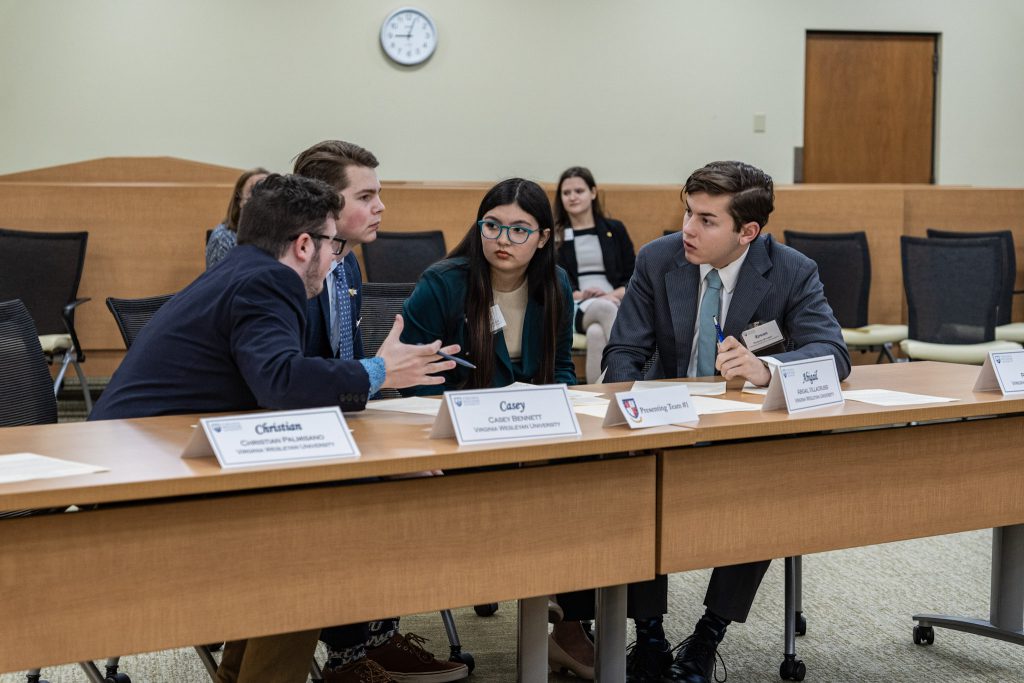Thomas Mills
Photo Editor
Governmental budget cuts threaten the Hampton Roads area, leaving Wesleyan worried about financial aid.
First came the sequestration: a government proposal to cut billions of dollars in spending to help balance the national budget. Then came the shock: spending cuts that affected essential programs, placed thousands of workers on unpaid leave and reduced hours for millions of jobs.
Yet, a very serious question remains: How will the sequestration, with its drastic cuts taking place across the nation, affect the Virginia Wesleyan community?
“From what we can tell and what we’ve been told, it doesn’t look like it’s going to affect Wesleyan,” said Director of Financial Aid Teresa Rhyne. “What they’ve budgeted for us is what they’re going to keep. A lot of schools around us are seeing cuts.”
However, that is not to say that Virginia Wesleyan will be completely immune to the effects of the sequestration.
According to Rhyne, parent loans will see an increase in interest, going from 4 percent to 4.2 percent. Also, new loans that are being processed will have a higher origination fee, being raised to 1.05 percent.
“Hopefully, before fall semester comes around, the sequestration will be over” said Rhyne. “Then the loans will go back down and we won’t have to deal with it.”
For students, a major area of concern is the Work Study program, a program that provides money for students to use on tuition, living and necessities.
Dr. Leslie Caughell, an assistant professor for the Political Science Department, understands the importance of the Work Study program for students.
“For students, Work Study is a great thing,” said Caughell. “It’s one of the ways the government levels the playing field for students that are disadvantaged.”
“Work Study helps me pay for my gas and all my things that I need to do,” said sophomore Morgan Piero, who works for the history department as a Work Study student. “My family could cut out my car, cable and we still could not afford the tuition. Work Study helps.”
For sophomore Jules Whitehurst, who is an employee at the school bookstore on Work Study, any potential cuts to the program would impact not only his livelihood, but also his education.
“Most of my earnings go to buying books for class,” said Whitehurst. “I need books for class. It would definitely reflect on my grades.”
The Work Study program benefits not only the students, but it also helps universities and colleges.
“Universities and colleges like to hire people on Work Study,” said Caughell. “Part of their pay is coming from the federal government, so the universities and colleges are paying them less.”
Ryhne indicates that the Department of Education has yet to release any guidelines on how to deal with potential cuts to the Work Study program.
“We still would have to pay students minimum wage,” said Ryhne. “Maybe we would reduce the amount of student workers we have. Or, we would reduce the amount they earn. So, instead of $1500 for the year, it would be reduced to $1000 on the year.”
However, Ryhne is confident that the sequestration will not affect Work Study or the other financial programs on campus.
“Right now, from what we can tell, our funding is going to stay the same,” said Ryhne. “Everything looks like it will be stable for the 2013-2014 year.”
The good news for some students is that there is more aid coming to them for the upcoming year.
“The Virginia Tuition Assistant Grant, for students that live in the state of Virginia, is going up by $300 next year,” said Ryhne. “The Pell Grant is also going up by $95, which will help out a lot of our students.”
However, students are still apprehensive about the sequestration. Since there is no finalized budget in place, anything can happen.
“You never know with politics,” said Piero. “I don’t know what would be the outcome.”
Thankfully, the financial forecast for VWC doesn’t seem to have grey, cloudy skies anytime soon.
“I don’t see any changes coming,” said Ryhne. “I’m not foreseeing that. Everything is set for the upcoming year.”

